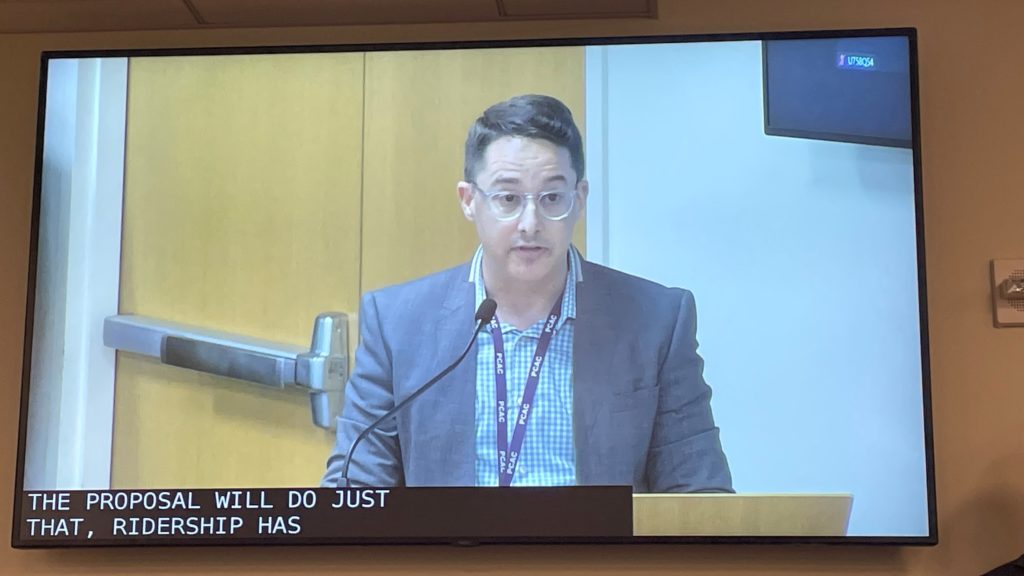Good morning, I am Bradley Brashears, Associate Director of the Permanent Citizens Advisory Committee to the MTA (PCAC). We were glad to learn about upcoming B/D line work in the Bronx at Monday’s Transit Committee meeting, and we hope to hear more about resiliency improvements today as was mentioned when Board Member Soliman asked about street-level flood treatments. As we head into the summer and hurricane season, riders need to know there is a game plan to protect and keep the system running safely.
But what does resiliency actually mean for transit? It means anticipating, preparing for and adapting to changing conditions and recovering rapidly from disruptions. Improvements around the system should be implemented through a resiliency lens to help withstand the climate crisis. It’s also important that the MTA views sustainability and resiliency as intrinsically connected. Investing in sustainability best practices will, in turn, help create an even more resilient transit system. The MTA is already sustainable by nature, carrying 40 percent of the nation’s transit riders, but what can be done for the MTA to become even more sustainable and resilient, building upon current efforts? One sure way is to attract more drivers out of cars and onto transit, lowering emissions.
PCAC’s Freedom Ticket proposal will help do just that. Weekend ridership on the railroads has surpassed pre-pandemic levels, but it’s still rebounding more slowly than driving. Freedom Ticket expansion will incentivize transit ridership by providing more widespread commuter rail discounts, with free transfers to subways and buses – truly making it One Metro New York. It is the first step in expanding the other important discount commuter rail fare pilot programs underway.
Even more exciting is the soon to be LIRR service to Grand Central, which will provide capacity needed to expand Freedom Ticket beyond the Atlantic Ticket pilot that began four years ago this month. Bringing regional riders a more equitable transit network will be crucial to regaining ridership, and reducing emissions, especially in time for congestion pricing. The time for Freedom Ticket has come— we must take this opportunity to expand the program now. While it will take more than Freedom Ticket to build a more resilient and sustainable MTA—more reliable service and state of good repair improvements included— it can make a great difference in bringing drivers onto transit.
Thank you!
